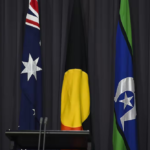We need a disability abuse Royal Commission
A Senate report has recommended a Royal Commission into Violence against People with Disability. Craig Wallace says the abuse being perpetrated on some of the most vulnerable people imaginable, often by those institutions meant to care for them, needs to stop.
There are years when evidence, advocacy and events change the national outlook.
In 2013 we saw this for disability care and support when Australians opened their hearts and wallets to pay for a National Disability Insurance Scheme. People responded to kids growing up with curved spines die to a lack of equipment and adults forced to endure having only two showers a week for want of a few support hours.
2015 should mark a similar watershed with the revelations coming out of the Royal Commission into Institutional Responses to Child Abuse and Neglect and the Senate Inquiry into violence, abuse and neglect against people with disability in institutional and residential settings.
The evidence going into these inquiries are a wakeup call on the prevalence of abuse and violence being perpetrated on some of the most vulnerable people imaginable, often by those people and institutions meant to care for them.
Last week in Sydney disability advocates gathered to mark the first White Flower Memorial to remember people with disability who have died in disability institutions.
A list of names and institutions representing the different kinds of murder, rape and abuse was read out at the service from a grassroots research project to bring together these stories called the Uncounted.
This list, which represents a small sample of stories, took nearly half an hour to read. These are not for the faint of heart. They were stories of mass graves and places like Willow Court, Milsen and Peat Island. Few of them are household names but they should be as should be the stories of some of the people who died.
Take Peta Doig who died aged 58, of Graylands Hospital, WA. Peta was institutionalised at an early age after being diagnosed with autism and intellectual disability. She was physically and sexually assaulted hundreds of times during her lifetime, which caused difficulties in examining her. Peta, who was a healthy child, acquired a number of disabilities in ‘care’, including a fractured spine which left her incontinent and unable to walk. She was repeatedly denied medical care because of her disability.
The day after Christmas, 2012, staff noticed that Peta was screaming in pain. They did not admit her to hospital, and she kept screaming. On January 3, her heart stopped beating.
This is not ancient history and yet I haven’t found a modern life that mirrors the pain and misery of Peta’s hellish time on this earth. So often the coroners are our biographers, so perhaps it is to be found amongst the slaves of antiquity or the Christian Martyrs.
We held the event at Macquarie place. This site was chosen for our memorial service because it is the first formal public space, the town square created in 1810. In 1818, made by convict labour the Obelisk that stands marks the distance to other places in New South Wales along the earliest roads. Even now it is a place that is used to calculate the length of all road journeys to and from Sydney.
It is fitting that we remembered that the journey to that place and to this event took 227 years: this obelisk is where all points meet, past and present, a place that connects all our histories.
In my speech at the service I noted that when my European ancestors came out they didn’t just bring convicts and invasion. They also bought the borstals, the asylums, the orphanages and the cruel history of places like Bedlam. They bought the misguided therapies that crossed a wafer thin line into torture.
They bought buildings that had attics and imported attics of the mind that fed us the lie that disability and illness was something to be feared, enclosed and shut away.
Under the guise of law, medicine, therapy, family and charity terrible things were done.
People were chained in cots and forced to lie in their excrement, drugged, shocked, beaten, starved and denied water, raped, imprisoned and murdered. People were buried one on top of the other in paupers’ graves. There were clients without names. Many of these cases are unreported and poorly followed up by authorities, with euphemisms like mercy killing or service incident papering over the reality of murder or rape.
We learnt during the services of the release of the Senate Inquiry Report recommending a Royal Commission into Violence against People with Disability, plus an overhaul of the justice system and a national watchdog body.
Coalition senators on the committee, Zed Seselja and Joanna Lindgren, stopped short of calling for a royal commission, saying a judicial inquiry should be “considered” and they were open to further investigation of “this crucial matter”.
Under former Prime Minister Tony Abbott, the Coalition had previously resisted calls for a national inquiry into the abuse of people with disabilities, arguing states and territories had responsibility for disability services.
This is strange given the Commonwealth has now assumed responsibility for disability services and we have a plethora of Royal Commissions into various issues of varying import.
It’s hard to argue that inquiries into Union corruption or the disastrous home insulation rollout are unwarranted, yet neither comes close to the catalogue of horrors exposed within the Uncounted or depths plumbed in the single life of Peta Doig. How many Petas still endure wanton neglect and violence?
So this International Day of People with Disability, instead of the usual celebrations, the most appropriate thing the new Turnbull Government could do is announce a Royal Commission into violence against people with disability to lance a great evil and cauterise the wound lest we repeat mistakes made in the institutions and practices of the past.
Craig Wallace is a policy manager and activist. His articles have been published in The Australian Financial Review, The Guardian, The Australian, ABC Ramp Up, Crikey and The Canberra Times. He tweets @CraigWtweets.













